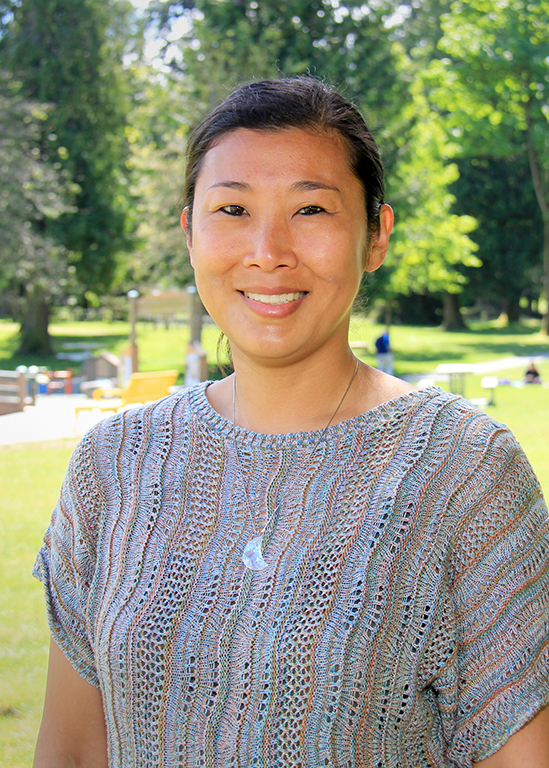
Amy Mitsuko Goo
By Amy Mitsuko Goo
Exclusive to Northwest Asian Weekly
Coping with a substance use disorder, and the mental illness that often accompanies it, is becoming all too common. I know firsthand. Newspaper headlines report on the crisis affecting everyone from celebrities to soccer moms. President Trump even declared a public health emergency. Last year, Seattle and King County set a new record for fatal overdoses, with 359 deaths. For me, the crisis is personal.
As an adopted Korean growing up with Asian parents, I had a seemingly picture-perfect childhood. I was an honor roll student and cheerleader, and grew up in a middle-class neighborhood in Federal Way. Yet I never felt like I belonged — I felt isolated from my peers. These feelings led to depression, acting out at school as a cry for help, and eventually drugs and alcohol.
In Asian American communities, mental illness and addiction are typically not openly addressed or discussed. They are private matters dealt with at home, or in my case, not at all.
When my actions eventually caught the attention of my parents, they were mortified. They internalize feelings and value protecting family honor, which can lead to sacrificing your own wellbeing. In their article titled “Asian Americans, addictions, and barriers to treatment,” MDs Timothy W. Fong and John Tsuang write that the shame in asking for help represents a failure of the family to solve the situation, and Asian families place significant emphasis on appearances of normal functioning. This has been true of my family experience.
So, I didn’t go to counseling and we didn’t talk about it again. I remember my parents telling me, “You’re too smart to have these issues.”
The National Alliance on Mental Illness website states that Asian Americans used mental health services at about one-third the rate of white Americans in 2013. During my treatment, I noticed only a few, if any, Asian Americans in groups with me, or in the waiting rooms before or after my appointments.
I wonder how many kids feel lost and alone and do not seek treatment for mental illness because of cultural or family norms. I wonder how many turn to drugs and alcohol to cope?
How many years would these kids get back if they got treatment earlier?
For me, it took too long and the costs were too great. In my 20s, I turned to crack, cocaine, LSD, meth, and pain pills, and I ended up homeless. I was in and out of five inpatient treatment facilities. Eventually, I was diagnosed with bipolar disorder. Only years later did I find out that substance abuse and addiction often accompanies untreated mental illness.
That life is behind me now. I received treatment and counseling from Valley Cities Behavioral Health Care, an organization that will soon be opening a new mental health and detox facility on Beacon Hill — the first of its kind in King County. The help I received there allowed me to live my life as a relatively happy and “normal” person. My parents understand now that I wasn’t having a bad day and I wasn’t just sad for all those years — I had and have a serious mental illness.
It is my belief that there is not enough education in Asian communities about the importance of seeking help for mental illness and substance use. Since culture and values may prevent Asian families from seeking counseling services, service providers must come up with ways of making families feel less like they are under attack when confronted with the option of counseling.
There needs to be a less-intrusive way for health providers to engage with Asian American communities and talk to people — like my parents — to open their eyes to the impact of not addressing these problems. There is no shame in seeking help, only shame in looking the other way.
Amy Mitsuko Goo keeps busy as a mom to her 3-year-old son, Quinn, while studying to be a chemical dependency counselor at Highline Community College.



Amy is a wonderful person. Love her to death. She has overcome so much, and is still a positive person.
Glad to see you speaking out.
We sincerely hope that the new website of our volunteer organization: Healing Mental Disorders (Schizophrenia, etc.) http://healingmentaldisorders.com (with the option for automatic translation from English into other languages) would be helpful for all people around the world (including the patients and their family members) who want to add complementary spiritual treatment to their process of recovery from mental illness. Also, read mental health breaking news alert, published in real time, on our website. You also can check our device for seeing the spiritual plane and its inhabitants (so called “astral goggles” that allow people to see the invisible world around them). Check our Gallery and Remedy pages too.
This website is a volunteer work serving to bring useful information about adding the principles of Spiritism to the process of healing mental disorders.